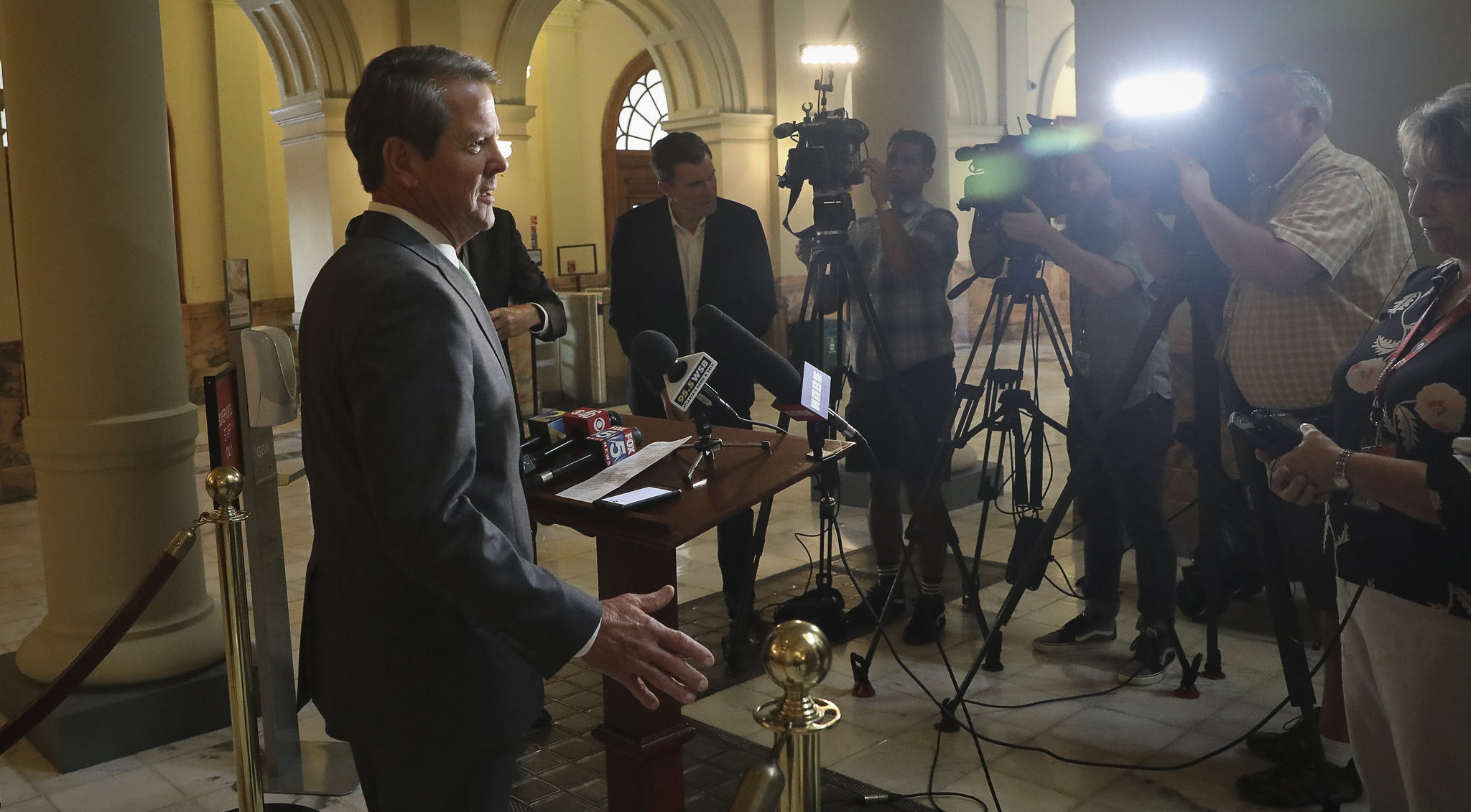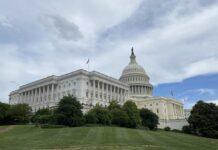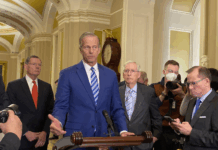
ATLANTA (AP) — Gov. Brian Kemp said Monday he will spend up to $1.2 billion in federal COVID-19 aid on payments of $350 apiece to more than 3 million Georgians who benefit from Medicaid, subsidized child health insurance, food stamps or cash welfare assistance.
The payments will start in September, said Katie Byrd, a spokesperson for the governor’s office.
The move comes atop Kemp’s proposals last week to spend $2 billion in state surplus, split between property tax rebates and a second round of income tax rebates, if voters choose him for a second term in November over Democratic challenger Stacey Abrams. Those separate plans would require legislative approval next year.
Monday’s announcement will put money in the hands of less affluent Georgians in the months before the nationally watched election in a narrowly contested swing state. Those are voters to whom Abrams has been tailoring her economic platform. She also backs another round of income tax rebates, like those Kemp already pushed through, but has been arguing that Georgia also needs to do more to invest in long-term expansions of health, education and small business assistance to try to create a less unequal economy.
Kemp, though, appears to be betting that handing out cash now will outweigh the promise of future improvements. Under Georgia state law, he alone controls how billions in federal COVID-19 relief is spent, meaning he can hand out money even as he bashes Democratic President Joe Biden and Abrams for inflation and high spending.
The governor again said that his reason for handing out cash was to help people pressured by higher prices, even though economists agree that such spending worsens inflation by dumping more cash into the economy to bid up the prices of goods and services.
“This assistance will help some of Georgia’s most vulnerable citizens cope with the continued negative economic impact of the COVID-19 public health emergency and 40-year-high inflation caused by disastrous policies that were implemented by the Biden administration,” Kemp’s office said in a statement.
Kemp has cited the same reason for repeated suspensions of the state’s gas and diesel taxes since March, a move that has cost the state more than $800 million in foregone tax revenue. Abrams has called on Kemp to guarantee a suspension of fuel taxes through the end of the year.
Abrams has repeatedly accused Kemp of hypocrisy for taking credit for federally financed benefits while bad-mouthing Biden. Abrams spokesperson Alex Floyd in a Monday statement called the move another of Kemp’s “election-year vote-buying schemes.”
While Kemp is boosting the income of poorer Georgians now, he terminated a monthly boost of at least $95 in food stamp benefits at the end of May when he ended Georgia’s COVID-19 state of emergency. His administration has also lagged in distributing hundreds of millions of dollars in federal money meant to prevent evictions.
“The reality is Brian Kemp refuses to expand Medicaid, has cut food assistance amid rising prices and failed to fully deploy federal rental assistance, leaving too many Georgians evicted,” said Abrams spokesperson Alex Floyd said in a statement. “Now, in the middle of a reelection campaign, he’s taking money to stage more political gimmicks. Kemp’s PR stunt is too little, too late.”
The state Department of Human Services said on its website that beneficiaries will get the payment automatically, but urged people to update their contact information on a state website that manages health and welfare benefits. The state said that people who get food stamps and cash welfare benefits will not get the money on the same debit card they get those benefits, but didn’t immediately respond to questions about how the money will get sent out.
Only people enrolled as of July 31 will get the money. Anyone who enrolled later or who left programs earlier is not eligible. If someone benefits from multiple programs, they will only get one $350 payment, but separate payments will be given to everyone in a household that benefits, meaning a single parent with two children would get $1,050, for example.
Georgia had 2.3 million people benefiting from Medicaid or the Child Health Insurance Program in April, according to the most recent federal figures, while it had 1.59 million people benefitting from food stamps in May.






